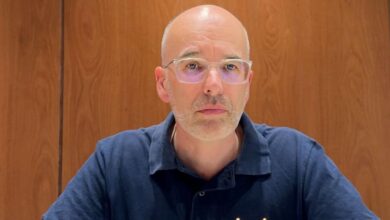Can Indian farmers be saved? Yes, says an innovative farmer!
'Direct marketing can solve farmers' problems,' says the farmer who, along with colleagues, had bought 300 cars at once.
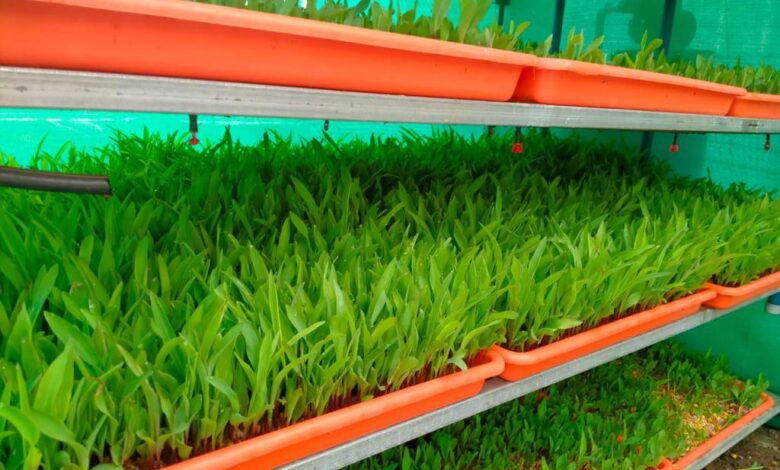
By Dr. Namrata Mishra Tiwari
He shares his firm belief that, -‘Indian farmers are in distress because there is no guarantee for return. Cash crop farmers are the ones taking their own lives. If, after understanding the customers’ needs, they start targeted & direct marketing, they will not need subsidies or loan waivers from the governments. Vegetables that may fetch some twenty thousand rupees in mandi may fetch more than rupees one lac, if sold directly to the customers at their doorstep. The buyers, in return, get these agricultural organic goods farm fresh directly at their doorstep at no extra cost. This is the prime advantage for both if the middlemen system is done away with. The agricultural reform laws have been repealed. Now the Indian farmers have to find an effective solution. If the farmers are to be saved from debt traps and from suicides, the direct marketing model is what needs to be followed.’
He and his farmer friends had created a sort of a flutter when they had bought 300 Maruti 800 cars in one go, some time back. Today one lac fifty six thousand farmers across six states in India are members of ‘Abhinav’ Shetkari Club, floated by him, which has an annual turnover of rupees four hundred crores.
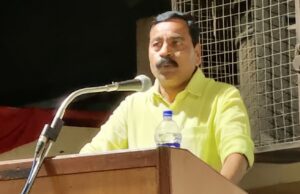
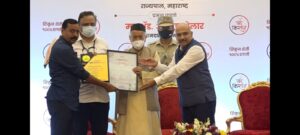
In search of sustainable farming
This is about a farmer from village ‘Man’, in Pune’s Mulshi tehsil, who broke conventions to find a ray of hope for the beleaguered farmer community.
Born in a marginal farmer’s family, a young Dnyaneshwar Bodke had to walk seven kilometers a day to school, barefoot. He had seen that even ten acres of a farm could not help a farmer family earn enough to sustain. He worked in a private job for ten years, leaving home at 6 am daily and returning by 11 pm.
But, in the year 1999, one news report changed his outlook and life. It was about a farmer in Sangli district, who had earned rupees 12 lac practicing polyhouse farming on one thousand square feet area in his small farm. He dialed the farmers no. on a neighbor’s land line phone and spoke to him. The farmer invited him to pay a visit to the farm. Dnyaneshwar could not afford even rupees fifteen to pay for a state transport bus fare. So he paid rupees five to a milk tanker driver one night to reach Sangli. He recalls, -‘It took me two hours to locate the said farmer as in our country people may remember a bootlegger’s name and address but no one seems to be aware of farmers in their vicinity. Luckily, I had brought the newspaper clipping and could reach him. He was an eighth standard pass out and a very simple being. I saw his farm and even accompanied him to his bank to confirm his earnings.’
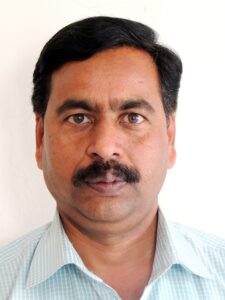
Dnyaneshwar was firm on his plans. His father then relented and asked him to get married while on job ‘because people usually do not allow their daughter to marry a poor farmer. They prefer accepting a habitual drunkard as a son in law if he is on some job and is salaried.’
However, Dnyaneshwar revealed his plans well in advance to his would-be in laws and got married upon their consent. He received training in modern Polyhouse farming from a government agency. It was mostly theoretical training rather than practical. Then for a year, he cycled 11km everyday to reach the center and worked for almost free for a year, to gain knowledge and confidence.
Armed with the knowledge, he planned to set up Polyhouse farming in one thousand square feet area. However, the bank made him bring different documents again and again as the ones submitted earlier were going missing. Farmers like him, who went to banks seeking financial support for farm projects, were thus made to feel guilty. For a floriculture project of rupees twelve lacs and fifty thousands, he had to arrange and pay rupees twenty five thousands, an astronomical sum for him then, to the chartered accountant.
Says Dnyaneshwar, -‘After a long wait, a lot of follow ups and heartburn, my project was finally sanctioned all thanks to a senior officer who thought positively about it. His subordinate had already rejected the proposal. My observation is, our government systems have only about twelve per cent positive thinkers as against eighty eight percent naysayers. The problem is, they all get their salaries every month.’
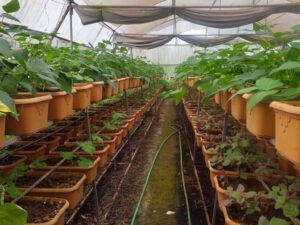
Direct Marketing yields positive results !
In 1999, Dnyaneshwar Bodke began cultivating decorative flowers like carnations and roses. He explains how he carried out his first project,-‘Right from the inception of my Polyhouse plan, the entire family was skeptical about the project’s success and feared whether we would have to auction our one acre farm for non payment of loan. We all slogged hard for the success of the floriculture project. Usually, flower cultivators begin marketing after the harvest begins and end up in bringing the flowers in the local mandi. Instead, I began marketing a month before the season, tying up with the decorators and the hotels. In Mumbai and Pune flower markets, the supply far outweighed the demand, thus making the farmers suffer. An officer advised me to send flowers to Delhi and gave me telephone numbers. I hadn’t been to Delhi before and had never traveled in a train. I sent my samples on the train. The buyers liked the quality and offered to pay advance. This was unheard of. My per flower expense was one Rupee eighty six Paise and I gained six Rupees twenty Paise. All the checks and money were being deposited directly to my bank account. ‘
Dnynaeshwar Bodke recounts an interesting incident when a year later, the bank manager paid a visit to the Bodke household and asked for Dnyaneshwar’s father. He says, -‘My father thought the visit was regarding the huge bank loan of rupees twelve lacs and its repayment. And that probably the family was about to lose the farmland. So my father didn’t come out. Then, the bank manager came in and touched my father’s feet. He offered him sweets as he congratulated us for having paid back the entire loan amount in just one year. It was indeed the beginning of a revolution!’
But, the next year in 2004, due to multiple replication of the model, Bodkhes received losses. He recalls, -‘Then, with National Bank for Agriculture & Rural Development NABARD’s help, we eleven floriculturist farmers came together to form Abhinav farmers’ club and distributed tasks among ourselves. The group swelled to 305 due to good prices. Our collective success made us buy 300 ‘Maruti-800′ cars simultaneously. We also received NABARD’s award for hi tech farming. We also built our houses. That year, as the flower prices witnessed a massive drop, most of us left and our group strength was reduced to 23 members. It was the same time when people started importing cheaper plastic flowers from China, which lasted for years. We decided to shift gears as per changing trends and left the flower cultivation. In floriculture, we had used plenty of chemicals, so now we wanted not to use even a drop of any chemical.’
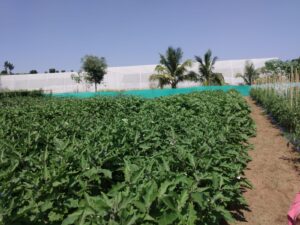
‘Abhinav Model’ for Indian farmers.
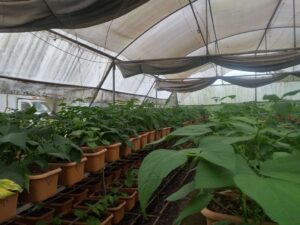
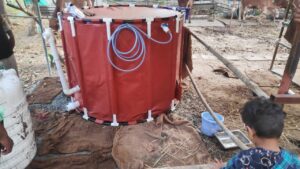
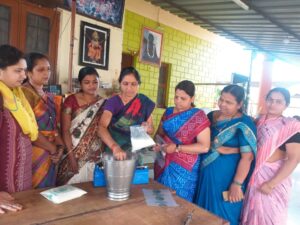
‘We must teach farmers how to calculate the whole production cost, and how to include the manpower expenses in it. We, instead, have taught our farmers to use fertilizers, hire consultants, include the cost for fertilizers and pesticides in the production cost, while forgetting his own labor. Because, equipment or materials by big industries come with supply chain expenses. That’s how the farmers do not get remuneration for their labour and have remained poor while, we keep hearing about farm suicides. How come the companies, their consultants and vendors have gained wealth and are richer while the farmers, they are supposed to serve, have remained poor.’
‘Our Market has absolutely no problems. There is no competition for nice products with good quality. We have a waiting of about ten lac customers for our organic vegetables and food grains. There is much less demand for processed food in India as we prefer fresh vegetables. Two years ago, our group sold twenty two thousand boxes of fresh mango fruits while we could not sell twenty two cans of mango pulp. Nobody in the Market Committees asks the farmers about their production cost. They are not interested. farmers can not get wealthy if they keep going to the APMCs.’
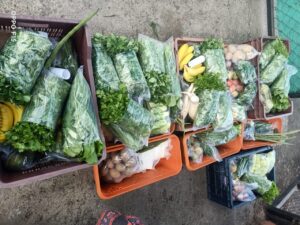
or WhatsApp on : 9422005569.
(all images: Abhinav Shetkari Club)


